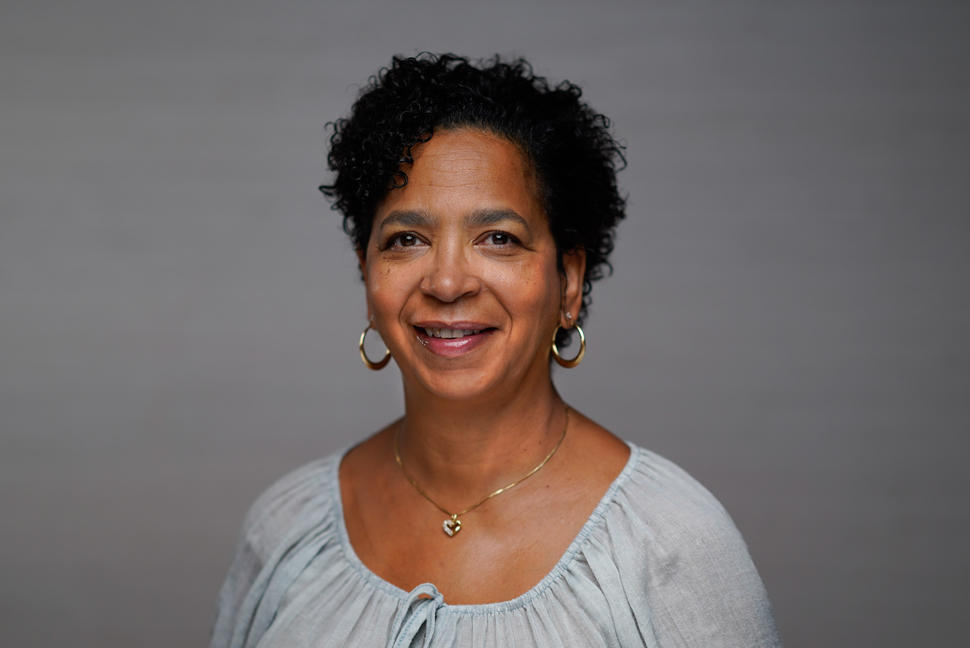Dr. Jill Bargonetti on Addressing Systemic Barriers to Including African American Women in Breast Cancer Research
, by CRCHD Staff
The NCI Center to Reduce Cancer Health Disparities supports Partnerships to Advance Cancer Health Equity (PACHE) to develop partnerships between institutions serving underserved health disparity populations and underrepresented students (ISUPS) and NCI-designated Cancer Centers. The Hunter College (HC)–Temple University–Fox Chase Cancer Center (TUFCCC) Partnership has made it possible for a newly supported pilot project between the team of co-Investigators Jill Bargonetti, Ph.D., (on the HC side) and Denise C. Connolly, Ph.D., (on the TUFCCC side) to begin a study titled “Evaluating Black and African American Breast Cancer Populations for Therapeutic Targeting of Aberrant p53, MDM2, MDMX, and PARP signaling.” Here, we highlight Dr. Bargonetti, who works at the City University of New York (CUNY) at HC and The Graduate Center (GC).
CUNY Hunter College is a Hispanic-Serving Institution with a long history of recruiting and training undergraduate and graduate students from groups traditionally underrepresented in the sciences. I am the Chair of the Molecular, Cellular, and Developmental Ph.D. program at the GC and the director of the National Science Foundation–funded postbaccalaureate program at HC (www.NYRaMP.org). I am a basic cancer researcher with 3 decades of experience studying the p53 pathway. The newly supported pilot project allows me and my team of Ph.D. students to work alongside the outstanding clinical cancer researchers at TUFCCC, led by Dr. Connolly, who is a basic-translational researcher and Director of the Fox Chase Cancer Center (FCCC) biosample repository facility.
Dr. Connolly and I bring together complementary and relevant expertise to study the biomarkers that I have studied for decades. The team is using this pilot award to develop cell culture tools at HC that will be compared for xenograft model drug treatment outcomes at HC and using state-of-the-art new equipment at TUFCCC while training the next generation of diverse HC scientists. The Research Education Core will help the HC Ph.D. researchers spend time at TUFCCC to be trained off of the HC site while they learn and work on the goals of the project.
As the Director of the FCCC biosample repository facility, Dr. Connolly has access to more than 250 diverse breast cancer tissue samples that are being used to build the tissue arrays that will be screened. Our team will compare expression of the oncogenic proteins mutant p53 (mtp53), MDM2, MDMX, and poly-ADP-ribose polymerase (PARP) in breast cancer tissues from Black/African American and White/European American patients and investigate their association with clinical outcomes. The goal is to classify the breast cancers by virtue of their levels of mtp53, MDM2, MDMX, and PARP, which our team predicts will help to guide response of non-BRCA mutant breast cancers to PARP inhibitor treatments. We will also enlist the collaboration of multiple TUFCCC members, including Dr. Shuanzeng (Sam) Wei, M.D., Ph.D., who focuses his studies on MDM2 gene amplification.
Additionally, HC community-participatory scientists in the Community Outreach Core will help us with outreach to community stakeholders to educate the community about the diverse array of breast cancer biomarkers that can be used to predict treatment responses. This study directly addresses the systemic barriers to including African American women in research on understudied biological determinants of breast cancer and includes biomarker studies, targeted therapeutic options to reduce breast cancer disparities, and outreach to the community as pilot goals that will be developed for larger grant applications in the future.
